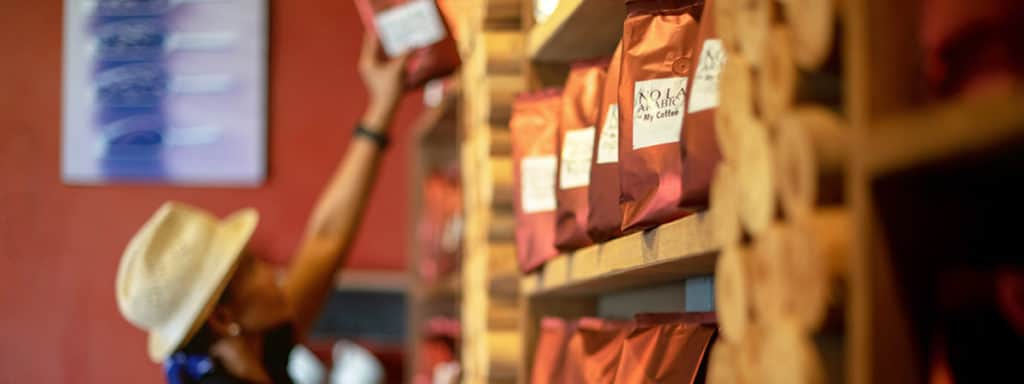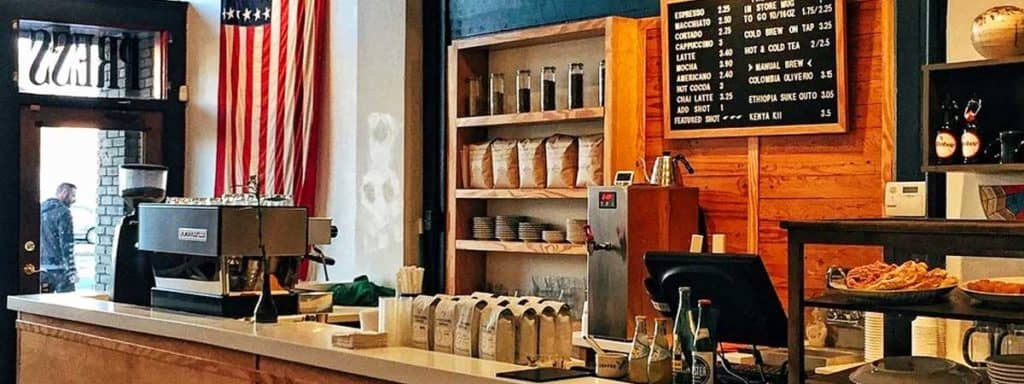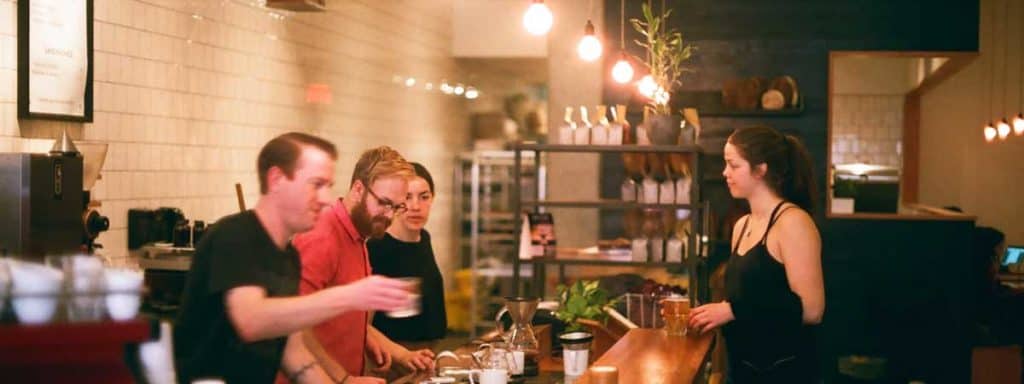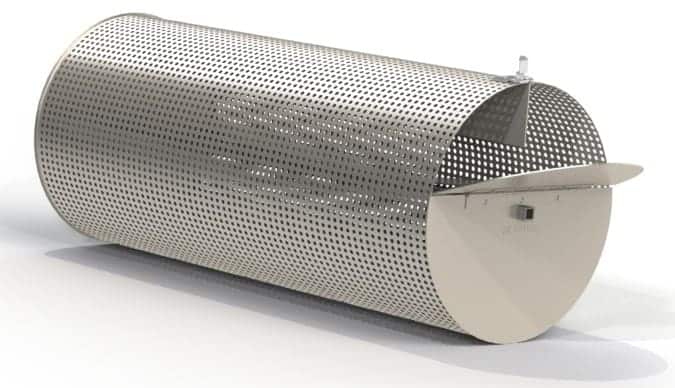

How to Get Coffee Into Customer's Hands
You’re leaning towards starting a microroastery of your own—but you’re still trying to figure out the best way to get that delicious coffee to your target customers. As you can imagine, deciding how you’ll get that coffee into the hands (and mugs) of your customer base is one of the most important choices you’ll make. In many ways, your business model and brand will be derived from your delivery method.
Not sure where to begin? Explore some common coffee delivery methods below, as well as some pros and cons for each. From there, you’ll be equipped with more of the information you need to reach a decision.

Farmer's Markets
If you’ve ever been to a farmer’s market, you’ve seen first-hand the appreciation buyers have for homemade goods. Coffee is no different here; your roasted coffee, with thoughtful enough packaging, can fit in quite nicely at a local farmer’s market—making this an excellent starting point for many microroasters.
Advantages
When you sell your fresh roasted coffee at a farmer’s market, you’ll enjoy the time and hassle you save by not having to do much in the way of marketing.
By simply having a small stand/display set up at the farmer's market, you'll automatically have dozens (if not hundreds) of prospective customers right in front of you.
Rather than focusing your efforts on marketing and advertising, then, you can put extra care into making sure your coffee is ready to serve up on market day. And on the day of the farmer’s market, you won’t need much in the way of supplies. You can even give out small samples of your coffee to draw extra foot traffic to your table; all you’ll need is a coffee maker, some cups, and some cream/sugar!
Potential Drawbacks
One of the biggest drawbacks to selling your coffee at a farmer’s market is the inherent competition; even if you’re the only microroaster there, there will still be dozens of other vendors trying to sell their products and goods. As a result, you’ll need to put a fair amount of time and effort into creating an eye-catching display that will get potential customers to stop at your table.
You might also need special permits, licenses, and insurance to sell consumable goods at your local farmer’s market, and these can take time (and money) to obtain. And speaking of time, some farmer’s markets may be so popular that they have a waiting list for vendors. And of course, depending on where you live, your local farmer’s market may not be open year-round.

Delivery/Neighborhood Sales
If you like the idea of keeping your microroastery business on the smaller side (or treating it as a side hustle), consider selling just to your immediate area. You can even hand-delivery the coffee yourself, offering a personal touch that larger roasteries simply cannot.
Advantages
There’s no regulation when it comes to selling roasted coffee on this small of a scale, so you don’t have to worry about permits and other licenses. And because you’re only selling to a limited geographical area, you can keep things relatively informal and low stress. Many microroasters that go this route are able to make all their deliveries one or two days a week.
Potential Drawbacks
Obviously, hand-delivering coffee to your customers is time-consuming and will cost you money in gas. This is where it becomes important to keep your geographical delivery area small, especially at first. And because you’re delivering only to a small area, you cannot expect your sales to be significant. This is truly more of a side-business than a full-time gig.

Retail Space Partnerships
If you’re looking to sell on a larger level (and don’t want to deal with the hassle of delivery or selling face-to-face at a farmer’s market), you might be able to get shelf space for your roasted coffee at a local retail store.
Advantages
With this type of set-up, you don’t have to go out of your way to find your customers, which saves you on marketing and advertising costs. Depending on the specific retailer with which you’ve partnered, there may also be less in the way of regulation than a farmer’s market (though this is not always the case).
One of the biggest advantages of this kind of retail partnership, though, is that you don't have to deal with any of the actual sales.
Instead, your retail partner handles all the transactions (and processing) before passing along your share of the profits directly to you. It doesn’t get much easier than that.
Potential Drawbacks
On a related note, though, you can typically expect your retailer to take a pretty large chunk of your profits when you go this route. Shelf space is expensive, after all. And in some retailers, such as larger “chain” stores, there may be a lot of competition to even get your product on the shelves in the first place. This is where starting at a smaller “mom and pop” store can be a smart move, especially for microroasters who are new to retail sales.

Coffee Shop Partnerships
If you know of a local coffee shop that doesn’t already offer their own roast for purchase, you might also look into entering a partnership with them. This can be done in conjunction with a retail partnership or entirely on its own, depending on your preferences and business plan.
Advantages
When your specialty coffee is sitting on the shelves at a local coffee shop, you already have some of your best potential customers right in front of you. This saves you a lot of time and hassle when it comes to marketing, since the typical customer buying coffee at your local coffee shop is already likely to be interested in a product like the one you’re selling.
Potential Drawbacks
Again, with any type of partnership, you’re going to have to give up a portion of your sales to the coffee shop itself. And of course, more and more coffee shops these days are roasting their own coffee—so finding one that needs your product may be a challenge.

Church Coffee Shop Sales
Churches of all sizes set up coffee shops for people to purchase a hot cup of coffee before or after the service. This can be an excellent opportunity for you to get some of your own fresh roasted coffee out there.
Advantages
If you already attend the church, you’ll probably have an easier time getting in touch with whoever is in charge of the coffee stand; from there, you can make the necessary connections to become the church’s official coffee roast supplier. Even if you don’t attend the church, knowing somebody who does or simply being a part of the local community can make all the difference here.
There’s a good chance that the church may even be willing to display your label and brand, which can help to build awareness of your coffee brand. Over time, you might even have church-goers approaching you directly to purchase your coffee. Overall, this can be an excellent way to build a local client base!
Potential Drawbacks
Most churches are very cost-conscious, so you probably cannot expect to make a large profit margin on selling your coffee in this type of venue. Furthermore, unless you have some larger churches in your area, you probably won’t reach more than a few dozen potential customers at any given gathering. And of course, many churches only hold services (and thus sell coffee) a couple of days a week, so this further limits your exposure and reach.

Roadside Coffee Stands
If you live in a more rural area, you might also consider setting up a roadside coffee stand!
Advantages
This option is significantly cheaper than finding a retail partner—and you’ll get to keep all the profits from the coffee that you sell! You can also get very creative with this type of set-up. Depending on where your stand is located, you could also reach hundreds or even thousands of drive-by customers each day. And unlike a farmer’s market, you won’t have as much to worry about when it comes to regulation and similar requirements.
Potential Drawbacks
Finding a place to set up your roadside stand can be a challenge, especially if you don’t own land near a busy roadway. You may need to partner with a local farmer or business owner to sell your coffee near a high-traffic area, which will in-turn eat into your profits. You’ll also need to figure out how to transport coffee to and from the roadside stand, which can be complicated if you don’t have a large vehicle available to you.

Website Sales/Shipping
If setting up a physical shop somewhere seems like more trouble than it’s worth right now, you can always sell your coffee directly to your consumers via your own website.
Advantages
There is very little regulation involved with online coffee roast sales, so you can save a lot of hassle here. And because you can ship your coffee to literally anywhere in the world, selling online opens up the opportunity for you to reach far more customers than any type of local sales set-up would. Online sales also allow you to roast on-demand, so you won’t have to worry about roasting in large batches and trying to keep it fresh until it sells.
Potential Drawbacks
The logistics of setting up an eCommerce site and marketing your online coffee shop can be very difficult, especially if you don’t have a lot of experience with this kind of technology. And if you have to hire this kind of work out, costs can add up quickly. Shipping can also be expensive, so you’ll need to figure out how to optimize shipping costs and get the coffee to your customers promptly for maximum freshness.


